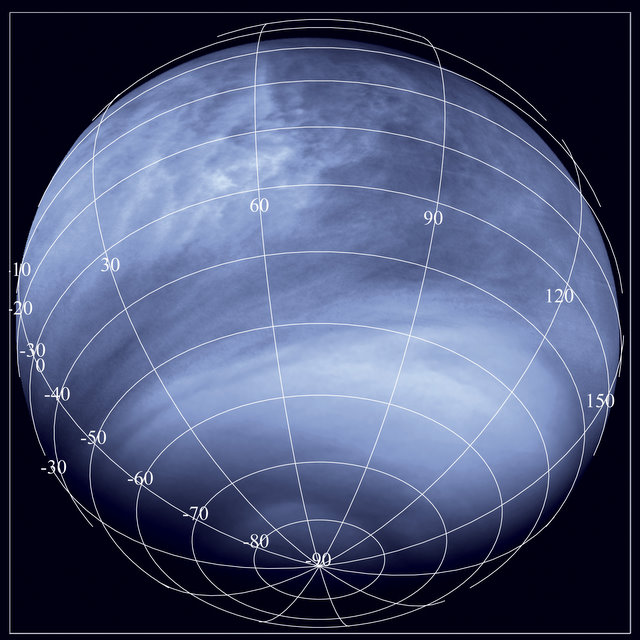[/caption]
Venus is one of the planets visible with the unaided eye. Because it has always been easy to see, it’s impossible to say who discovered Venus. In fact, after the Moon and the Sun, Venus is the brightest object in the sky – it’s likely ancient people thousands of years ago knew about it.
You can’t really talk about the discovery of Venus, but historians do know when observations of Venus were first written down. In fact, one of the oldest surviving astronomical documents is a Babylonian text that talks about Venus in 1600 BC. It contains a 21-year record of Venus’ appearances. Venus played a part in the mythology of many ancient peoples, including the Mayans and the Greeks.
The first person to point a telescope at Venus was Galileo Galilei in 1610. Even with his crude telescope, Galileo realized that Venus goes through phases like the Moon. These observations helped support the Copernican view that the planets orbited the Sun, and not the Earth as previously believed.
Astronomers predicted that Venus would transit across the surface of the Sun. The first time this was observed was on December 4, 1639, and later transits helped astronomers discover that Venus has an atmosphere, and helped calculate the distance from the Earth to the Sun with great accuracy. The last transit of Venus happened in 2004, and the next one will happen in 2012.
Although the surface of Venus is obscured by thick clouds, radar signals were bounced of the surface of the planet in 1961. This allowed astronomers to calculate its radius accurately, and measure its speed of rotation. They also discovered that its axis of rotation is almost zero.
The first spacecraft to actually visit Venus was NASA’s Mariner 2, which flew past Venus in 1962. More recently, NASA’s Magellan spacecraft visited Venus and extensively mapped it surface with radar. ESA’s Venus Express arrived at Venus in May, 2006.
You might be surprised to know that Russian spacecraft have actually landed on the surface of Venus. Although there were several failed attempts, the first spacecraft to actually land on the surface of Venus and survive was Venera 7; although, it was only able to transmit for about 35 minutes.
So, it’s hard to say who actually discovered Venus. The first caveman who stepped outside in the early evening would have noticed bright Venus. But since the discovery of the telescope, and the beginning of the space age, scientists have really been able to discover Venus.
Here are articles about two planets in the Solar System that were actually discovered in recent times. Here’s an article about the discovery of Uranus, and here’s an article about the discovery of Neptune.
Want more information on Venus? Here’s a link to Hubblesite’s News Releases about Venus, and here’s NASA’s Solar System Exploration Guide to Venus.
We have also recorded a whole episode of Astronomy Cast that’s just about planet Venus. Listen to it here, Episode 50: Venus.
References:
NASA: Transit of Venus
NASA Solar System Exploration: Venus

